At the end of 2024, at the defense industry exhibition, MK Group brought to the exhibition 5 “made in Vietnam” weapons products, part of the dream of exporting weapons of the “father” of citizen identification cards Nguyen Trong Khang. That year, Mr. Khang’s group also bought a South African company specializing in the defense industry. Now, in addition to sharing about the group’s 3 main pillars, Mr. Khang added that he is planning to deploy passports for some countries in Southeast Asia.
In the context of Resolution 68 and Resolution 57 being excited and responded to by the business community, the sharing of Mr. Nguyen Trong Khang as the leader of a private enterprise is a genuine voice about the story of Vietnamese enterprises daring to think, daring to do, participating in fields that bring many values as well as "brands" to the Vietnamese business community.
The business community, especially private enterprises, are very excited about Resolution 68. From the perspective of a private enterprise, how do you feel?
- It must be said that private enterprises are extremely excited about Resolution 68. I think the most important thing about Resolution 68 is to put private enterprises on par with other elements.
State-owned and private enterprises each have their own role appropriate to each context. Currently, when the private economic sector proves and demonstrates its role as an important driving force - especially in innovation and scientific and technological development, it is recognized and created conditions for development in the right direction.
Secondly, some fields, including the defense industry, were previously new fields, very new to private enterprises, but now private enterprises are allowed to participate in fields that are not prohibited, which means there is a wide path to participate in the defense industry. That is the breakthrough point.
Resolution 68 is an excellent foundation. The decriminalization of economic relations and the opportunity to remedy the consequences economically are points that businesses are very excited about. Secondly, allowing private enterprises to stand on equal footing with other elements can absolutely promote local industry.
However, there are still some points to note, such as the Law on Defense Industry has opened up opportunities for the private sector to participate in this field, but the guiding circular still talks about core defense industry enterprises, so what if they are not core? In my opinion, we need consistency in guidance, ensuring equal and transparent conditions for enterprises with technological capacity to participate and contribute to this special field.
In some countries like the US, private enterprises are facilitated to participate deeply in the defense industry with a strict control mechanism. This is a model that can be used as a reference to gradually expand the role of the private sector in this field in Vietnam. Those are the barriers that we need to consider.
You talked about the defense industry and private sector participation, the opportunities and the barriers. How do you deal with those barriers?
- We have sent some recommendations, but it is not clear to what extent those recommendations are being considered, what the results are, and whether there is any official response. Enterprises see the problems from the implementation practices, but for that to be dissected and handled effectively, two-way exchanges between ministries, branches, localities and the business community are needed.
When businesses are fully updated with new policies and guidelines, and vice versa, their voices are heard promptly, the implementation process will be more synchronous, unified and closer to reality.
Even the story of digital transformation - a major policy - still has different understandings and approaches among localities, leading to a lack of connectivity. Establishing a dialogue mechanism and regular updates between management agencies and businesses is essential.
Of course, major policies always need time to be institutionalized, such as Resolution 57 of the Politburo, which was issued half a year ago, but once the resolution is in place, it needs to be implemented in accordance with the guiding spirit. If each side still depends on the other, waiting for further instructions or adjustments according to other documents, it is easy to lead to a gap in implementation. Therefore, once we have the right policy, we need to resolutely put it into practice, avoiding the gap between the resolution and reality becoming wider and wider.
I think that macroeconomic policies play a very important role, and for businesses, one of the core policies is tax policy. If we want to promote local industry, we need to implement policies in a serious and substantive manner, because in the end, both domestic and international investors are interested in policies - not slogans.
In terms of exports, we are often happy with growth figures, but many economists have pointed out that Vietnam's export activities in recent years have still lacked sustainability. Growth has been mainly in quantity, while the added value and technology content of exported products are still limited.
In my opinion, it is time for us to take a more realistic look at our internal capacity, focusing on developing Vietnamese-owned technology products with high added value, instead of just chasing growth targets.
Recently, I went to Korea and met with some leaders of businesses worth about 500 million USD. They always said that countries like Korea and China see Vietnam as a "rising star".
What is the star here? It is that we have the ability to organize production, and no matter what, technology or whatever, in the end, organizing production is important. So we are right, how can we make Vietnam a base, a foundation for developing production technology. We cannot rely on cheap labor forever. If so, the value we enjoy is very little. If we want to rise up, I think that is the right thing to do, we must go into production technology.
It is like MK Group can increase its scale 5 times in a short time with a very low cost. If they master the technology, Vietnamese enterprises can do it.
Mastering technology is a pretty broad category. Can you share more specifically?
- We are working on this and hope to increase the opportunity even more. We bought a passport making machine. This machine outside the market costs millions of USD, but when MK Group makes it, the price is only 1/10 cheaper.
Right now, initially, Indonesia has raised the issue that they need 8 million copies. We raised the opposite issue that we will bring the machines, bring the technology, calculate the price of each copy like that and your country does not need to invest anything. We will sell chips, sell everything and we are doing it. This year we will make 4 machines, currently 2 machines are finished, 2 machines are still being made, it will be finished around August.
For example, we spend 20 passport making machines in 20 countries, each country can make an average of 5 million passports, each passport costs only a few USD, so try to calculate.
I mean if you have a deep understanding of a field, it is not only an opportunity for you domestically but also to expand to foreign markets. Businesses that want to expand need such technologies. At least if you can do the same as others, you have a chance in developing countries. For example, we make citizen identification cards in Ethiopia, buy businesses in South Africa, Brazil, etc.
The Brazilian market is about 230 million people, plus Indonesia and the Philippines in Asia, which together have half a billion people, totaling about 1 billion people, and a market of 1 billion people is already very big. Vietnamese businesses have a lot of room in developing markets like that because they have almost nothing, no public transportation, no digital transformation... After all, everything lies in the foundation, if people don't have the foundation, we have opportunities.
At MK Group, for example, our camera technology is on par with foreign countries. I am building the second phase of the factory to increase capacity, currently doing 5 projects, a huge investment. If we can do it, we will be trusted immediately. For example, explosive propellants are done with the Ministry of National Defense , and later if we can do it ourselves, we will start doing it, ensuring safety, even joint ventures with defense establishments to do it.
Last year, MK Group bought a South African company specializing in cameras, which have cameras that can see 20-30 or even 50km at night, serving defense purposes. When a drone flies and is detected by radar, the radar will notify the camera to follow it, and the other side will film it, so will our camera. We have determined to develop 3 major pillars and have prepared very carefully for this.
Those are the ways to go abroad. I went later, I need to do it differently. I see many opportunities. For example, I recently went to Europe, then decided to buy a Hungarian company. 70-80% of digital signatures in Vietnam are using this technology. Now, the simple calculation is that everyone needs a digital signature, in the future, everything needs digital documents, for example, making a red book, everyone needs a digital signature.
I think digital transformation needs to start with the most specific and practical things for the people. If every citizen has a digital signature that is recognized and widely used, many administrative procedures - including notarization - can be simplified or integrated right on the digital platform.
For example, when making transactions such as buying and selling property, instead of rolling your fingers in black ink or photocopying documents, the data already available in the electronic citizen identification card can be completely authenticated digitally, ensuring legality. I think digital transformation is a success when people no longer have to bring a stack of documents to notarize.
So what are the 3 pillars you shared specifically?
- Making airplanes, warships… requires something, not something that can be done on a beautiful day. After acquiring a number of companies, we will continue this process. In 2024, I will buy M-Tech.
In addition to providing finance, providing strategy or network, we also provide different ways of doing things. I want to organize production here, build production capacity here. Obviously we need to build capacity there in precision mechanics, mechatronics, optoelectronics, cybernetics.
Cybernetics is very important, of course, along with that comes issues like materials, gas turbines, propellants, explosives, and many other things. Those are things that combine Vietnam's knowledge in this field. Our production capacity is also good.
Like now, we make cameras, even later the traffic police will not have to go out on the streets anymore, it will be like in developed countries now. For example, regarding vehicle registration, the management agency now has to check all the registration stamps, but now our AI camera can identify 500 types of cars, recognize the license plate, push it to the State database and check if the car is still registered or not, if not, the owner will be fined. Those are effective things.
I think that at that time, people's habits will also change, traffic control will be more civilized, the city will be smarter... The database will become "richer" about real estate, healthcare... and this is very important for policy planning and making decisions correctly and effectively, helping policy makers to be much more effective in policy making, calculating policies from that basis.
AI camera is the eye, if we give it a brain, then we don't need humans anymore. Even in future production, AI camera will solve all quality management problems, then all products won't need humans anymore. Second is about robots. If robots want to be like humans, they must have AI cameras, eyes, and brains. Even weapons need AI.
MK Group's direction focuses on 3 pillars. ITC is all the ecosystems we have done so far, then AI camera - AI robotics, defense industry. These 3 pillars are very important to Vietnam, so the group's long-term orientation is very important.
But what will be the weight of the above 3 pillars, because some will change over time, according to scientific and technological trends?
- I think what we have done so far has great potential. Vietnam now has organized production, has production technology, and from the perspective of the implementing enterprise, I know how to control and arrange it at a fairly low cost. Now we organize factories, export the whole factory, people, and engineers. We can mobilize our people to projects in Latin America, Africa, including engineers, workers, and then withdraw.
Furthermore, countries now outsource those things. For example, passports, in addition to the story I mentioned above, there is another story: if a country brings it to another country, produces it and then returns, what will happen to national security? Now, we need to bring technology to that country, help people make passports, they pay us, we transfer technology to them or provide services for them. That is the way we do it.
For example, Ethiopia has 130 million people, we will come in and make citizen identification cards for this country starting from 2024, as a joint venture, MK Group 60%, Ethiopia 40%. Or Brazil for example, they have more than 200 million people, we invested 5 years ago.
There are many different games about technology and we have been there. However, we must say that we also have to learn, not simply because when we work, we work with other cultures, they have different ways of thinking…
So how have the group's teams and units around the world developed recently?
- Like the South African teams, they focus on development, reorganizing the team, and also doing business. Most companies are in a very good momentum and in the investment phase. I think that such investment is very effective, because in return, the group has the participation of many of the world's leading technology experts.
Experienced people, accompanying you, will help a lot. Value is created from there.
Simply, to have a team from the US come here, work with us and when we introduce to them what we are doing, they are very surprised that a Vietnamese company can do that. They are willing to cooperate, they are willing to sell the aircraft, we install our own stuff, the story is much simpler. International cooperation is very important. And the product as well as the market must be both domestic and international.
For example, MK's participation in major domestic projects such as CCCD or electronic passports is an opportunity for us to accumulate capacity, form experience and a foundation to gradually reach the international market. When people ask about practical experience, what practical products can we bring out and show that we can do it, the first thing is that we have experience, have products and we have done good things in what we do, for our people, for our country.
On the business side, we hope that the State needs to be more open, have policies that are quick, create mechanisms and have things to do immediately to bring technology to support and immediately deploy the Vietnamese defense industry.
And what are the immediate things you say to do?
- Firstly, there needs to be new mechanisms, not just investment in the form of projects. Secondly, there needs to be a way to grant licenses and patents for production so that the IP is still ours, we produce this, the defense industry produces that, then the products will be released very quickly. For example, according to regulations, private enterprises do not make explosives and propellants, but if private enterprises can do the control parts, then the parties will cooperate with each other to do it.
I hope the government has preferential policies for strategic things, and is ready to have preferential tax policies for businesses to invest because investment is very expensive. A rocket production program takes up to 10 years, almost no project is less, and now we do it in 2-3 years, which is terrible. But now we can do it right away, we can deploy it right away, this is a change in thinking and this time is even very, very important.
As in the case of our group, this time is very important because it is the first time a Vietnamese private company has participated in a defense exhibition, bringing all its products there. Just like now, many people still do not believe that Vietnam can make its own citizen identification cards and passports, because not many countries in the world can do it now. The most important thing is that we are assigned a task that we have never done before, but we dare to do it and do it successfully, thereby changing the country, changing the position of the country.
Honestly, is MK Group a "backyard" business?
- I don’t have anyone’s “field”, nor do I want to be anyone’s. We operate independently, based on real capacity for sustainable development. But I clearly see that the reality is still the same. The world has changed many games.
Previously, it was a game of buying weapons for use, but now it is necessary to be self-sufficient, the weapons must be controlled and require high precision. It is a game that I believe, if a Vietnamese enterprise has the technology and capacity, it will certainly have an opportunity.
I think that preparation is needed, it cannot be said that it can be done immediately. But if you prepare carefully, have the capacity and real ability, it is completely possible to do it. Don’t think in terms of domestic or foreign. If a business wants to survive, it must rely on its own capacity – if it has real capacity, there is no obstacle.
Regarding technology, the State has had many policies and incentives to encourage the development of the domestic technology industry as well as establish centers and focus on industries that create core values. What is your perspective as a domestic technology entrepreneur?
- Firstly, it is a very positive signal for Vietnam when many countries choose us as a destination. However, we should not be too optimistic but need to see our own strength. Personally, I think that semi-conductor is a game for countries and corporations with very large financial potential - a few hundred million USD is still a very small number. When it comes to production, it is necessary to take into account the scale factor.
I see opportunities for semiconductor manufacturing in Vietnam, because this field has many stages and steps. However, Vietnamese enterprises should not directly do it, because it is very difficult to have enough capacity in terms of finance, technology and related factors. That game is over. Units like SMC, Samsung - very smart investors - have entered the game. What we should do is to attract them, clearly identify what we can supply, and how to coordinate.
We need to position our capabilities, because the product life cycle in the semiconductor industry is extremely short. Today we do 5, tomorrow it will be 3, and then continue to optimize until we can't optimize any more - then problems will appear. As for participating in the chain and creating products that overcome technological barriers, I really don't have much confidence.
Vietnam should focus on its manufacturing strengths – where we have advantages in scale and cost. It is important to clearly position what we do and where we are in the value chain.
I think it is a good thing that FDI enterprises come to Vietnam and open factories, do this and that, and our engineers work with them, they will gain experience and we can export. Vietnam's economy is an export economy. However, once they come here, they can easily move away, so what remains with us is very important. Moreover, it is also important to build a research and development force, research on people.
If we only position ourselves for production, it is no different from a friend of mine who is the director of a garment company with tens of thousands of employees and almost no room for optimization, using all the technology but in the end, it is still people sewing. The number of workers keeps increasing, wages also increase while after Covid-19, the demand for clothing and shopping decreases when people simplify their lives a lot. That is not good.
Before Covid-19 happened, it took people decades to develop the behavior of going out to eat and shop, many brands also developed thanks to this behavior. Suddenly one day I found myself much simpler, eating at home, wearing simple clothes. Now that Vietnam has many FDI enterprises, we should take advantage of it. I think what we need to do for the semiconductor story is to train staff, expand existing factories for people to come in, we do packaging, that is our opportunity at this time.
Our group has just invested in a company that can be called a semiconductor company. We use this company's products to produce AI-integrated thermal cameras that can observe both day and night.
We also invest in another company that owns the IP, the manufacturing process and the full technical platform, but will choose to outsource some steps, then integrate them into a complete product under our brand – competitive enough with foreign products. Then the game will change. That is the core technology.
Listening to you, you always choose to do difficult things? Not everyone dares to do it because the risk is high?
- "Nothing venture, nothing have" right? I think that is very important for me to move forward. I want to do it, I dare to do it and at first I thought it was not perfect. Why do I have to invest in this company or that company in the military field, because this field requires perfection from the beginning, has very high technical and safety requirements, businesses must ensure absolute accuracy right from the research and development stage to actual implementation, not allowing themselves to be wrong.
I think we need to have a real vision for Vietnam. I think my mission or my business needs to change, it can't just stop at making money and making profit. We need to go beyond that a lot.
Thank you!
Content: Dan Anh
Source: https://dantri.com.vn/kinh-doanh/triet-ly-khong-lieu-khong-thanh-va-chuyen-lam-ho-chieu-cho-cac-nuoc-cua-mk-group-20250817171938482.htm




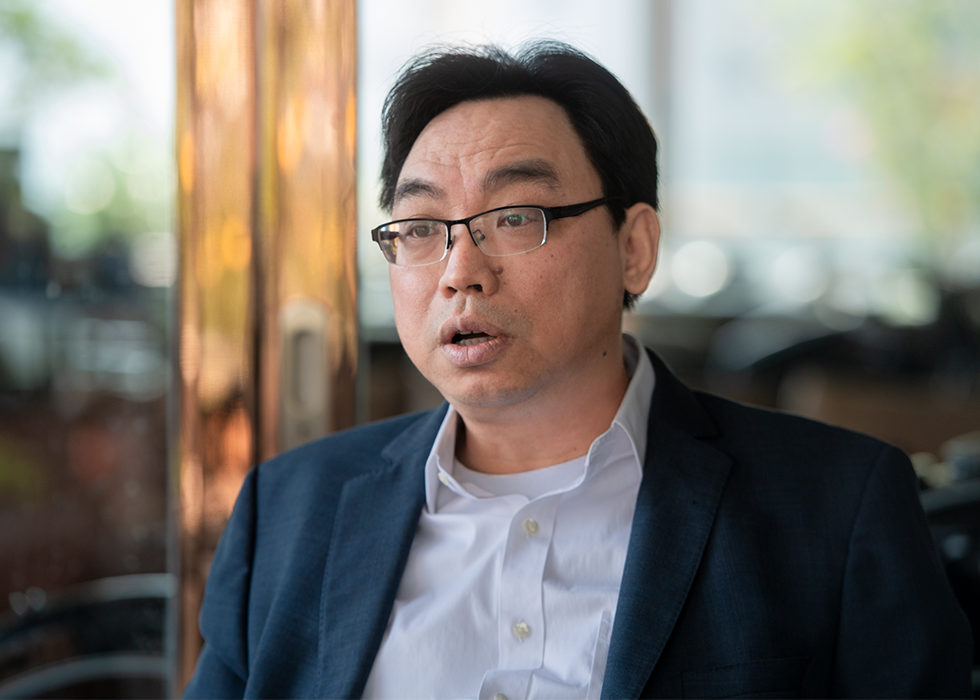
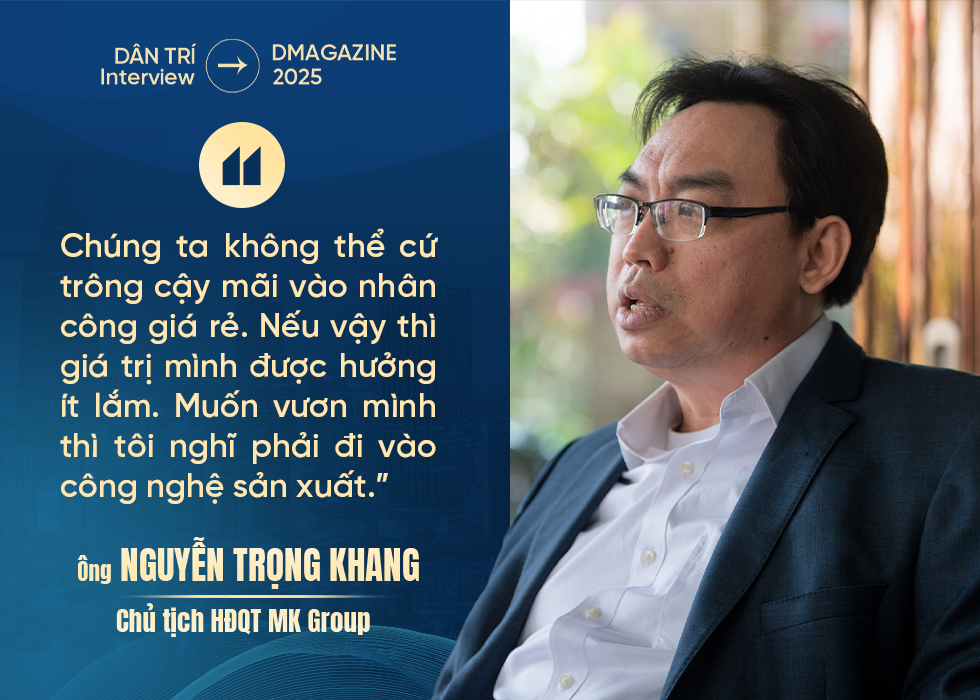

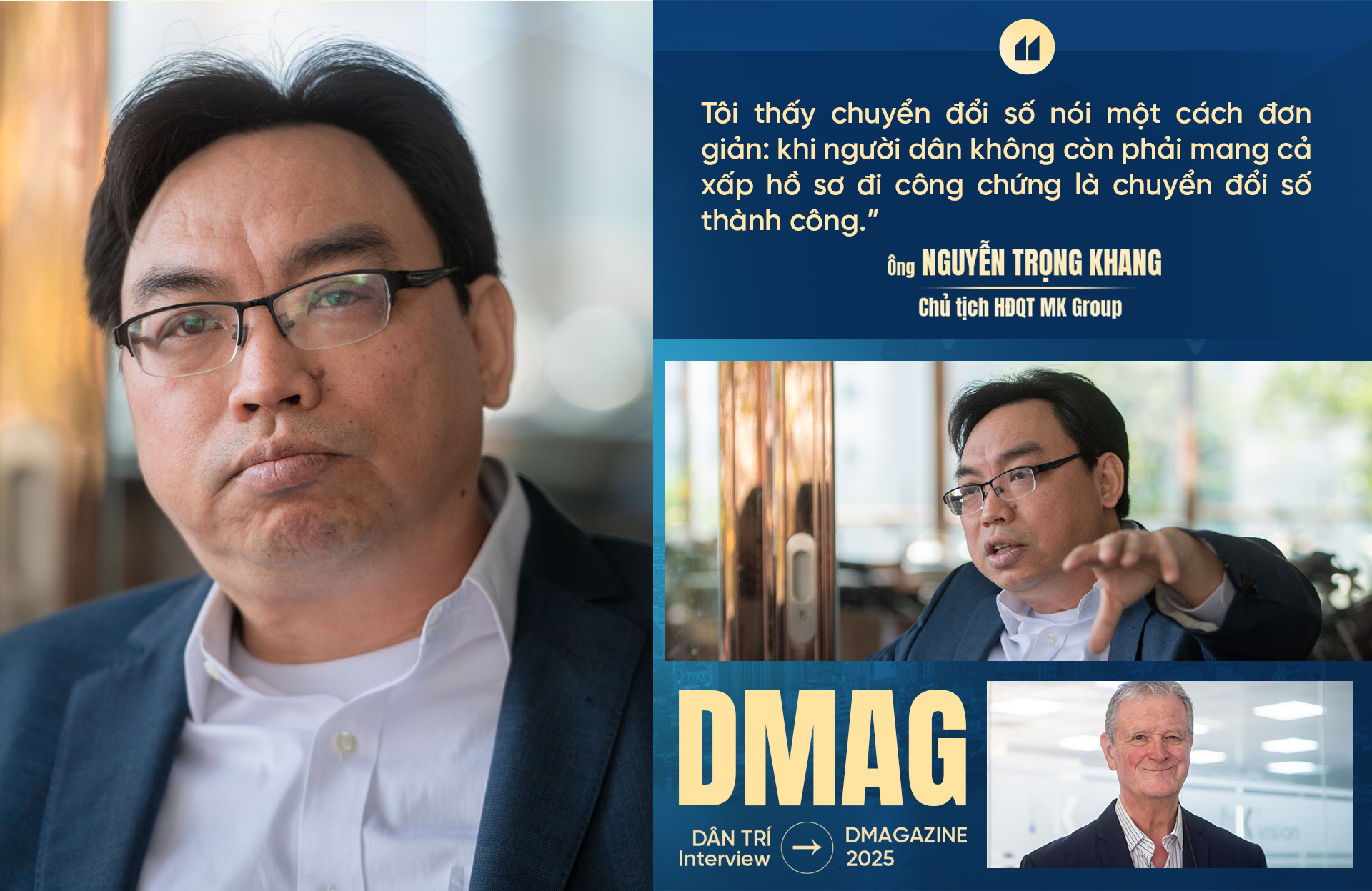

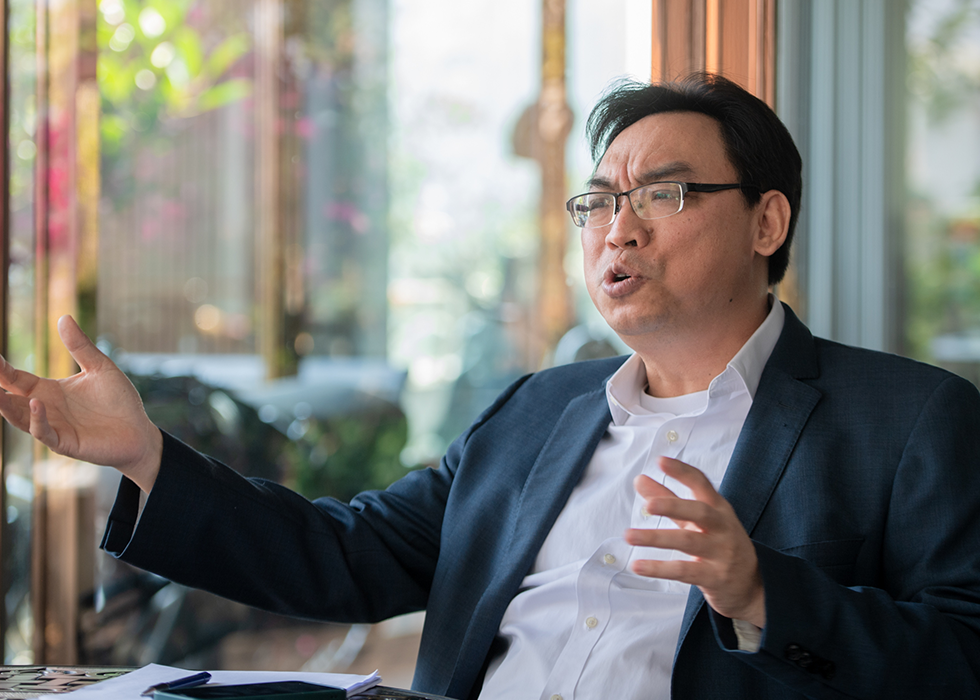
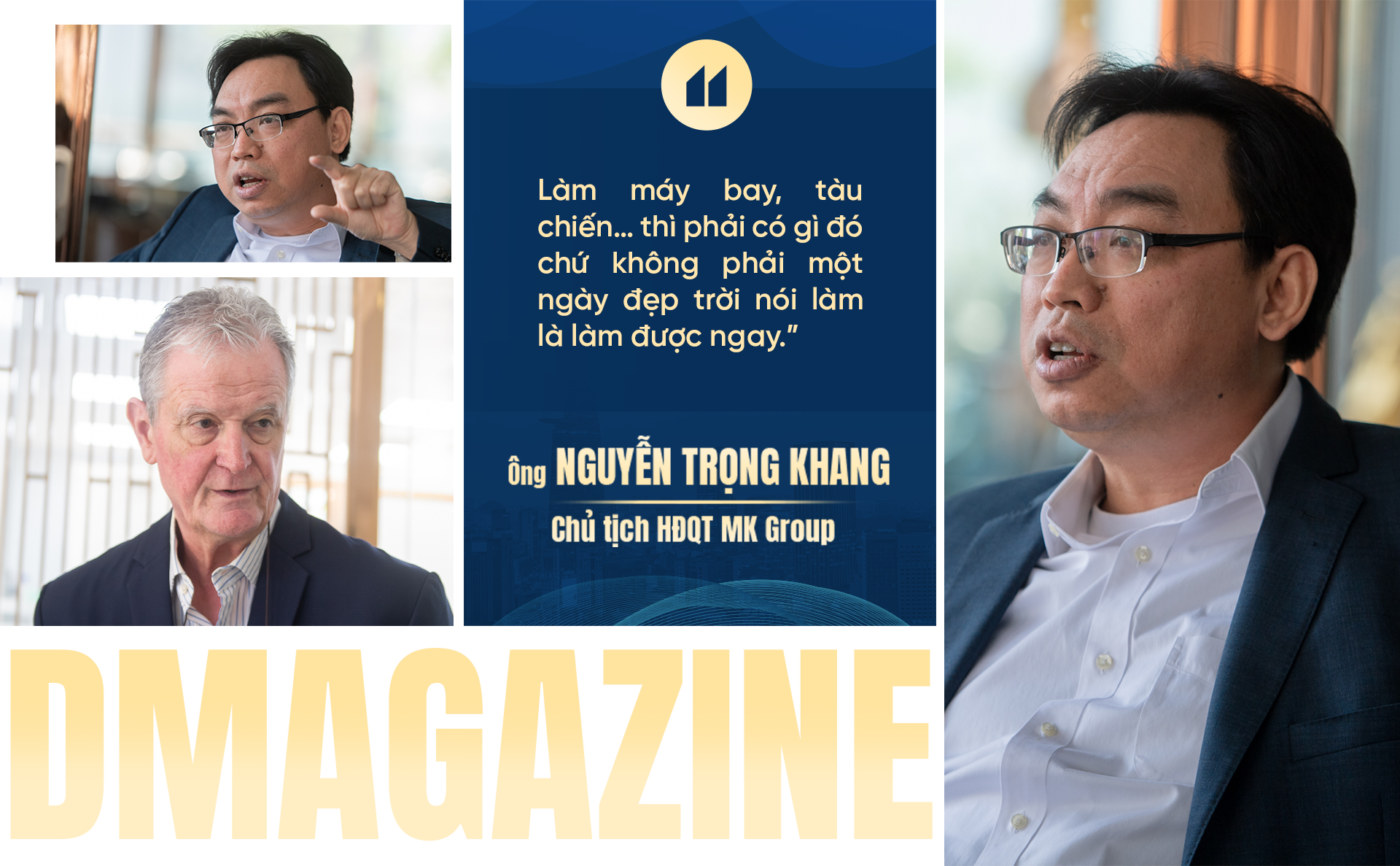
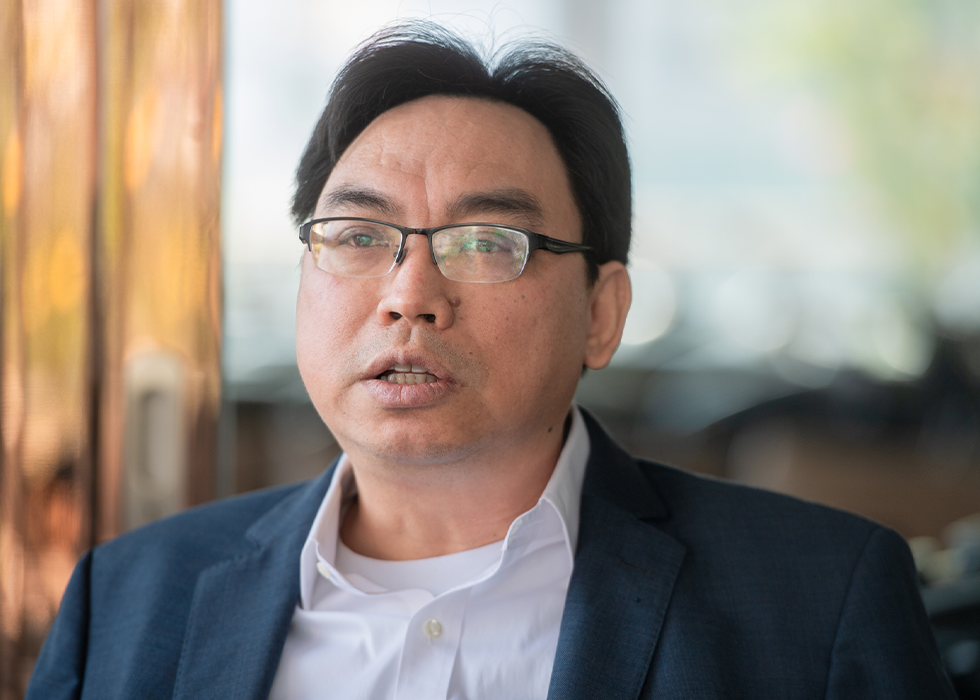

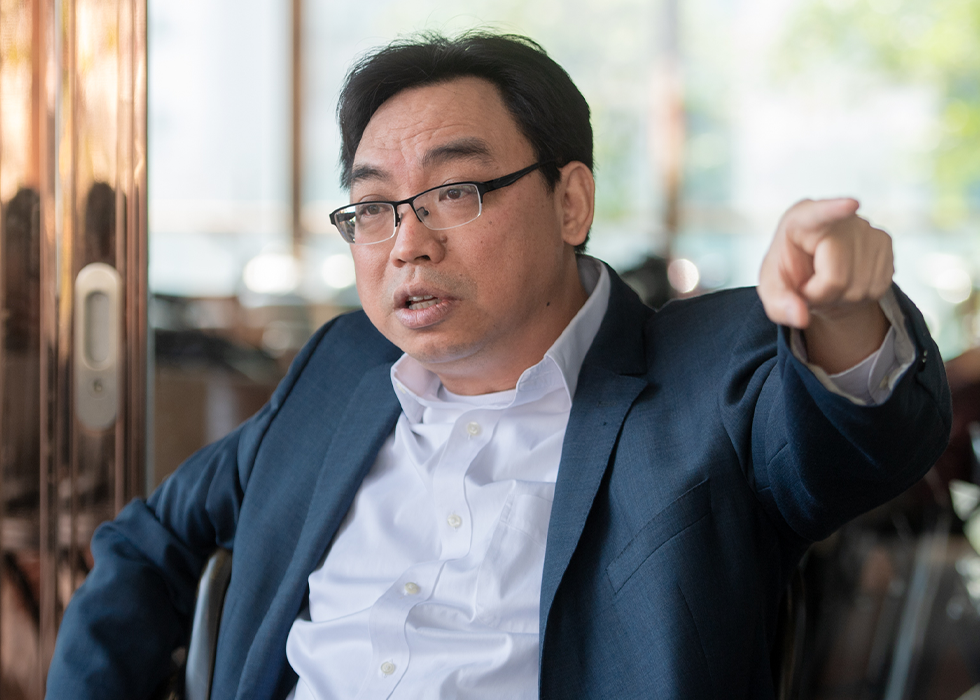
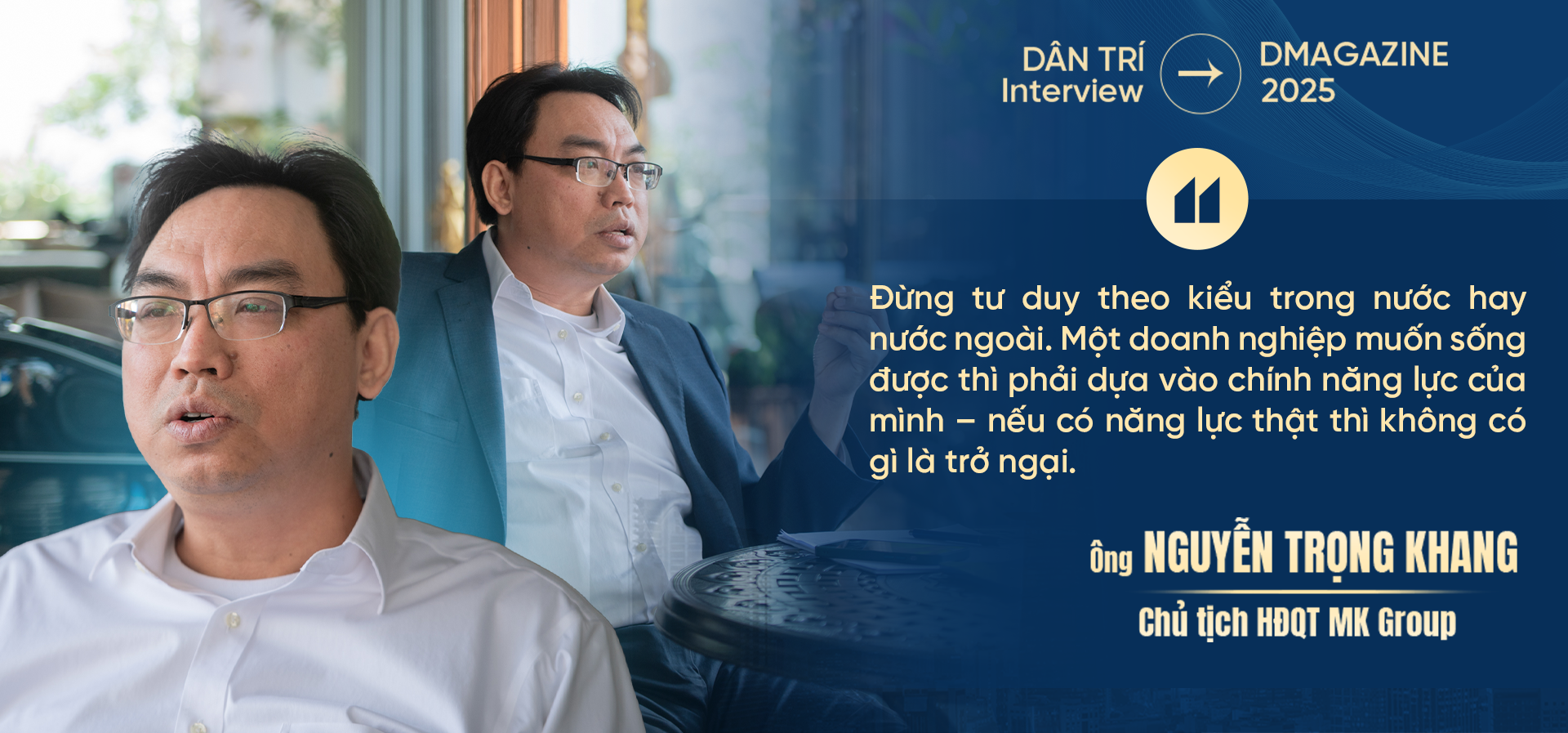



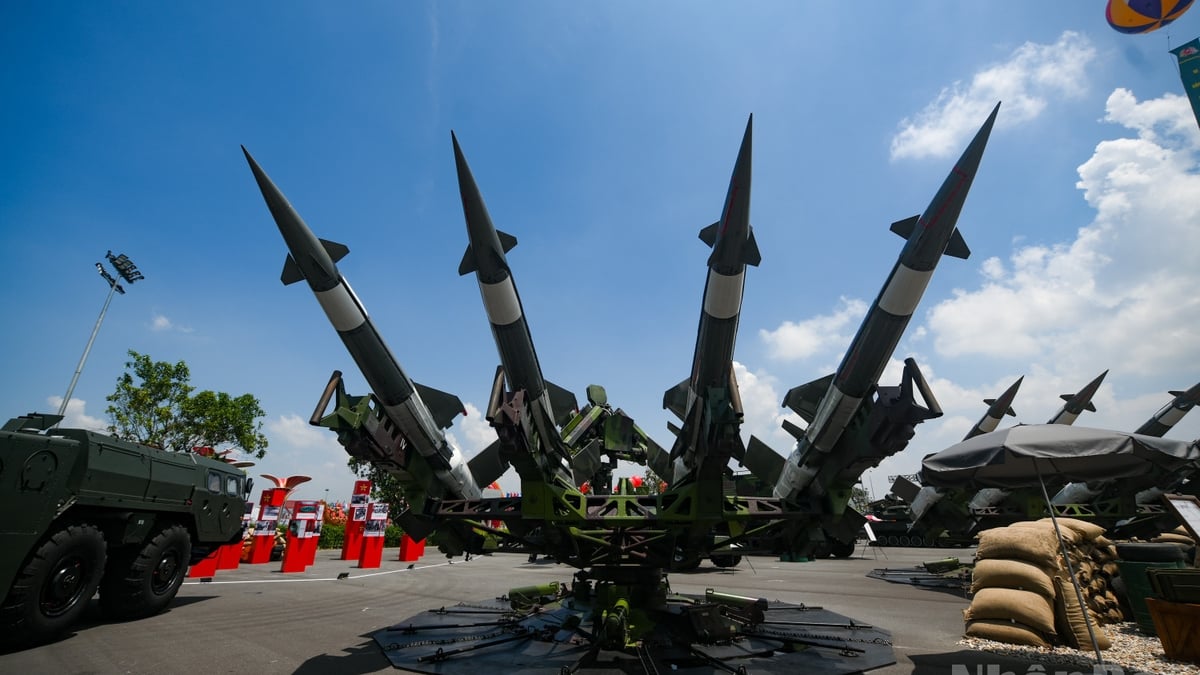


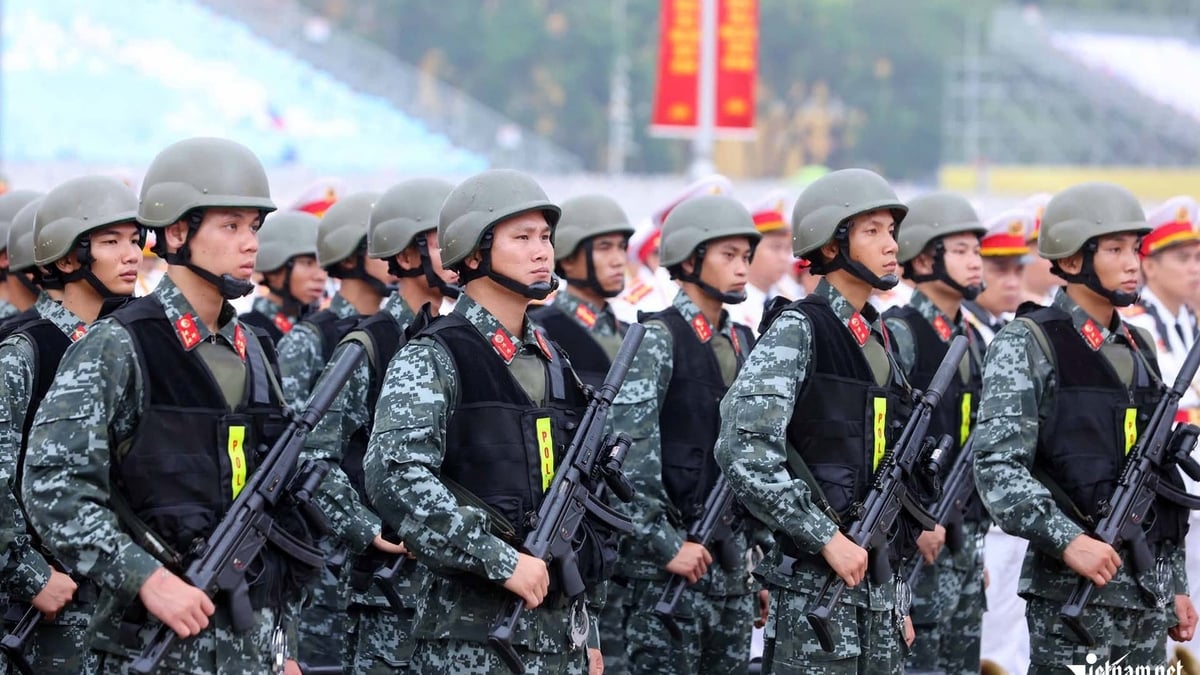
![[Photo] President Luong Cuong receives Speaker of the New Zealand Parliament Gerry Brownlee](https://vphoto.vietnam.vn/thumb/1200x675/vietnam/resource/IMAGE/2025/8/29/7accfe1f5d85485da58b0a61d35dc10f)
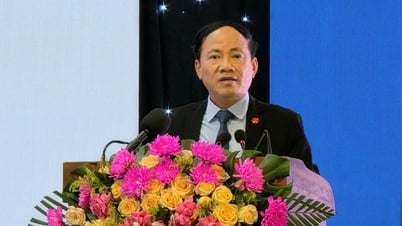



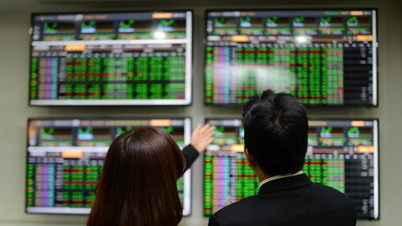

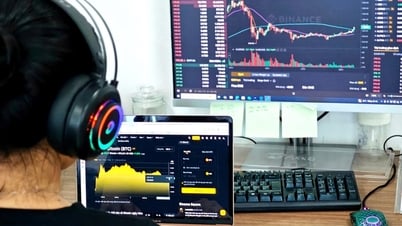



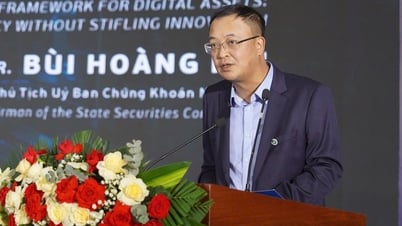











![[Photo] Hanoi is ready to serve the occasion of the 80th National Day Celebration on September 2nd](https://vphoto.vietnam.vn/thumb/1200x675/vietnam/resource/IMAGE/2025/8/29/c838ac82931a4ab9ba58119b5e2c5ffe)










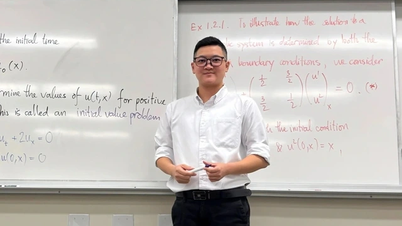
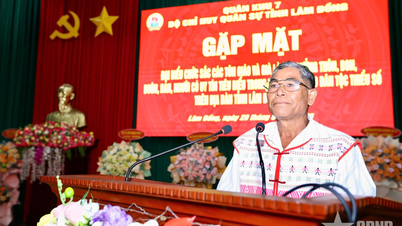

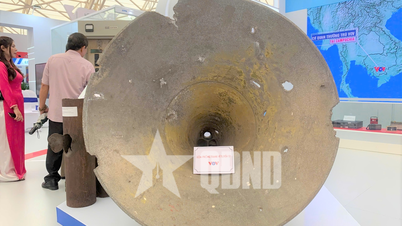

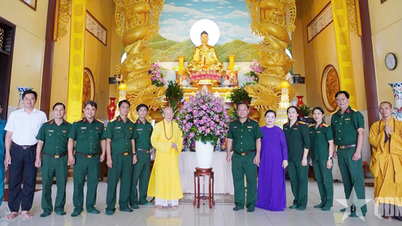
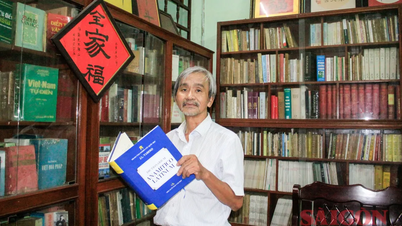

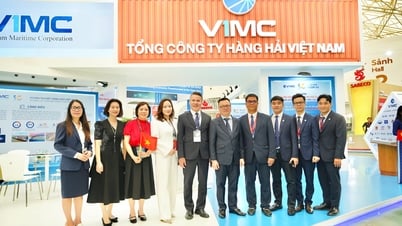



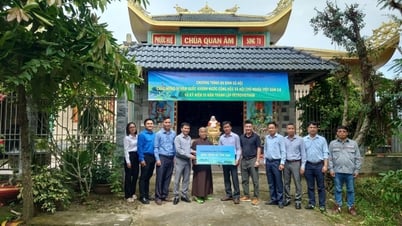


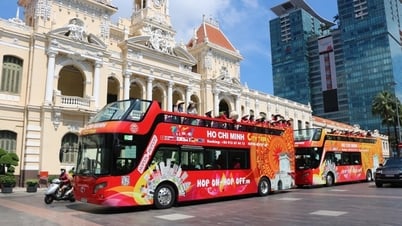


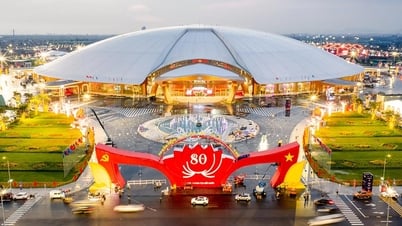
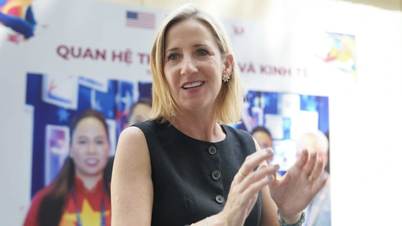

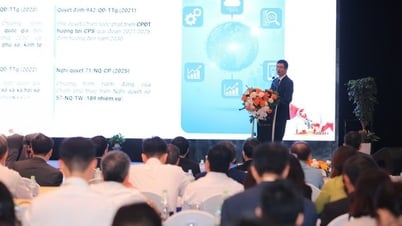

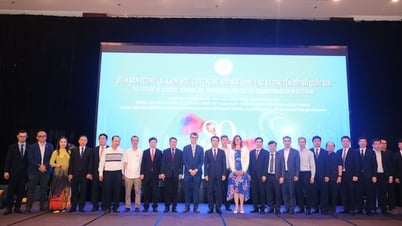


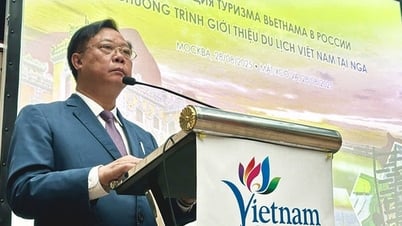








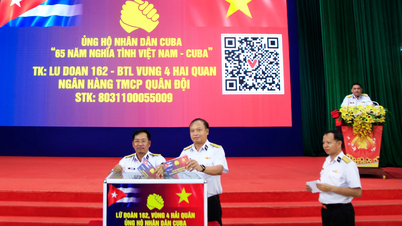

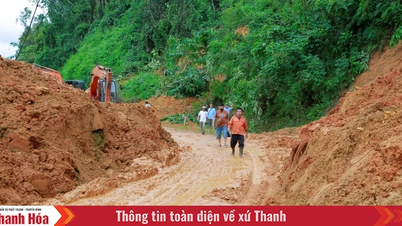







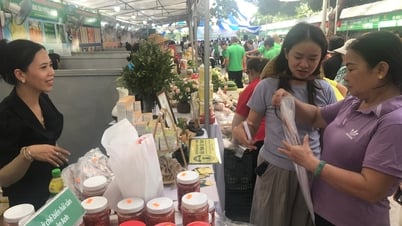






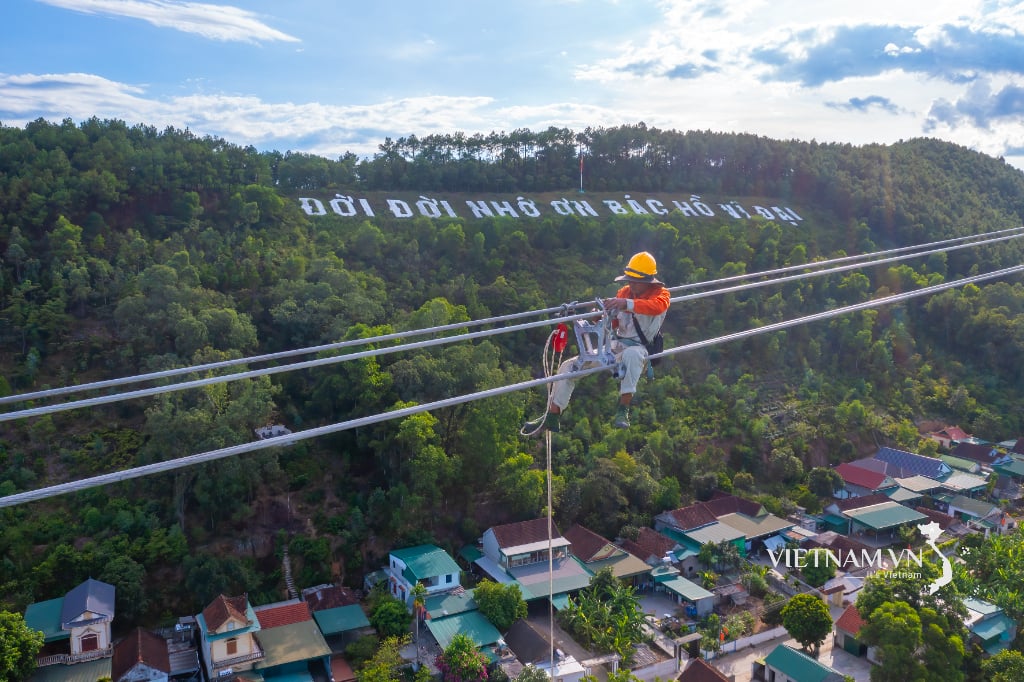
Comment (0)